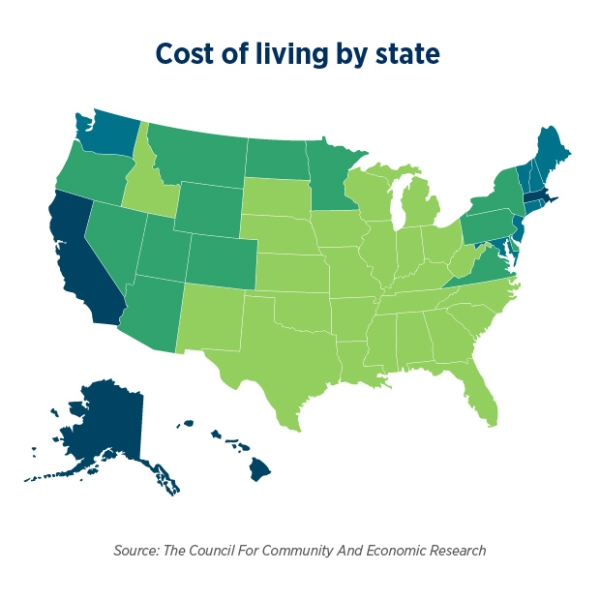Wellbeing during the holidays: 5 tips to alleviate stress

End-of-the-year holidays are often filled with family gatherings, tradition, anticipation and expectations. Not surprisingly, this combination can contribute to feelings of not only joy, but also stress.
In a 2015 Healthline survey (Mills, 2015), 62 percent of respondents described the holidays as being “very or somewhat” stressful, stemming from a variety of factors including increased financial demands, juggling more responsibilities than usual, and difficulty maintaining a healthy lifestyle of eating right and exercising.
If you are among those people who find the holidays stressful, you’re certainly not alone – and there are simple things you can do to take back some control and boost your spirits! Dr. Jen Brandt, the AVMA’s director of member wellbeing and diversity initiatives, offers these five tips for decreasing stress and increasing joy during the holiday season:
1. Take a tradition inventory.
Traditions are essentially habits that have been passed down through the generations. They can be a great way of bringing family and friends together, but sometimes we become so wedded to the tradition itself, that we forget to consider whether it still serves its intended purpose. If it doesn’t, it probably feels more like a burden.
Bottom line: Ask yourself if a tradition still brings you joy. If it does, then by all means keep it up. If it doesn’t, or if it no longer serves its intended purpose, thank it for its years of service and option it up to someone else who wants it, or let it retire in peace.
2. Thou shalt not should.
I should eat more vegetables. I should exercise more. I should feel grateful that I’ll be entertaining 50 people with various dietary needs. … Sound familiar? Thinking about the things we should be doing often comes from and reinforces a feeling of guilt and a sense that we somehow don’t measure up to where we think we ought to be. In reality, there are very few things we absolutely must do, and life is a series of choices. Taking full responsibility for your choices means getting clear about what motivates you to say yes or no to demands on your time and energy. And while there are consequences to our actions and inactions, that doesn’t mean we have to do something.
Bottom line: Reflect on your most frequently appearing shoulds, and practice replacing them with solution-focused words such as I choose to. A simple change of words can help you feel more empowered and in control of your decisions.
3. Think outside the gift box.
In an age of consumption, it’s sometimes difficult to know if we own things, or if things own us. Studies show that what most people truly crave these days isn’t an avalanche of gifts, but meaningful human connection. This is something you can incorporate into your usual holiday agenda to create new gift-giving traditions. How? Consider donating to a charity in lieu of gifts, starting a family gift exchange, creating homemade gifts, or focusing on experiences rather than stuff.
Bottom line: Before opening your wallet, give some thought to what gifts will truly bring joy to your friends and family. Then decide how much money you can afford to spend, and stick to your budget. For added security, you can build in a safety mechanism, such as a 24-hour waiting period before you purchase anything that would derail your commitment to financial health.
4. Be realistic about healthful habits.
Eating nutritious meals, avoiding processed foods and engaging in regular physical activity are habits that serve us well year-round. However, if sticking to a rigid plan makes you feel deprived during the holidays, these activities may be just as detrimental to your joy as overindulging or inactivity. The key word is balance. Put “movement time” on your calendar so that you can budget it into your daily energy allotment, but be lenient with yourself about what that entails. If your usual physical routine isn’t feasible during the holiday period, that’s OK; get curious about what will work for you. That could mean putting on some music and moving until you sweat, or stretching and strengthening your muscles with yoga or Pilates.Food is often a central part of the holiday season, and it’s important to keep in mind that partaking in the flavors of the holidays should not be a guilt-inducing experience. Food is meant to nourish us and bring us pleasure. Choose nutritious items when you can, but if - and when - you treat yourself to something special, remember to enjoy it!
Bottom line: Give yourself the freedom and flexibility to make adjustments to your daily health routine that will help you stay on track and also partake in the pleasures of the season.
5. Breathe.
Sometimes the best thing we can do for ourselves is pause and breathe. Activities that slow your breathing and clear your mind are proven to help reduce stress and restore a sense of inner calm. Watch Dr. Weil’s instruction video on the 4-7-8 breathing technique, which helps with relaxation.
Bottom line: Spending just 15 minutes alone, without distractions, may be enough to refresh and rejuvenate you.
Visit avma.org/wellbeing to learn more about incorporating self-care into your life and get resources to help you stay healthy year-round.



Comments
Add New Comment